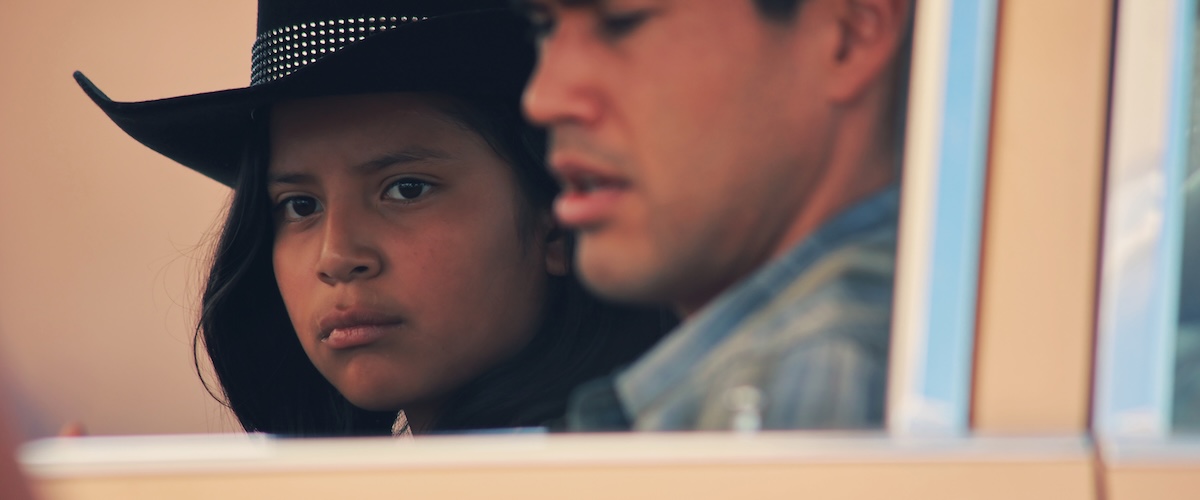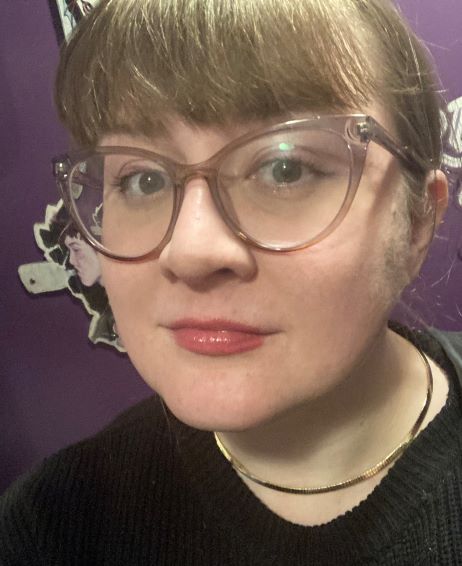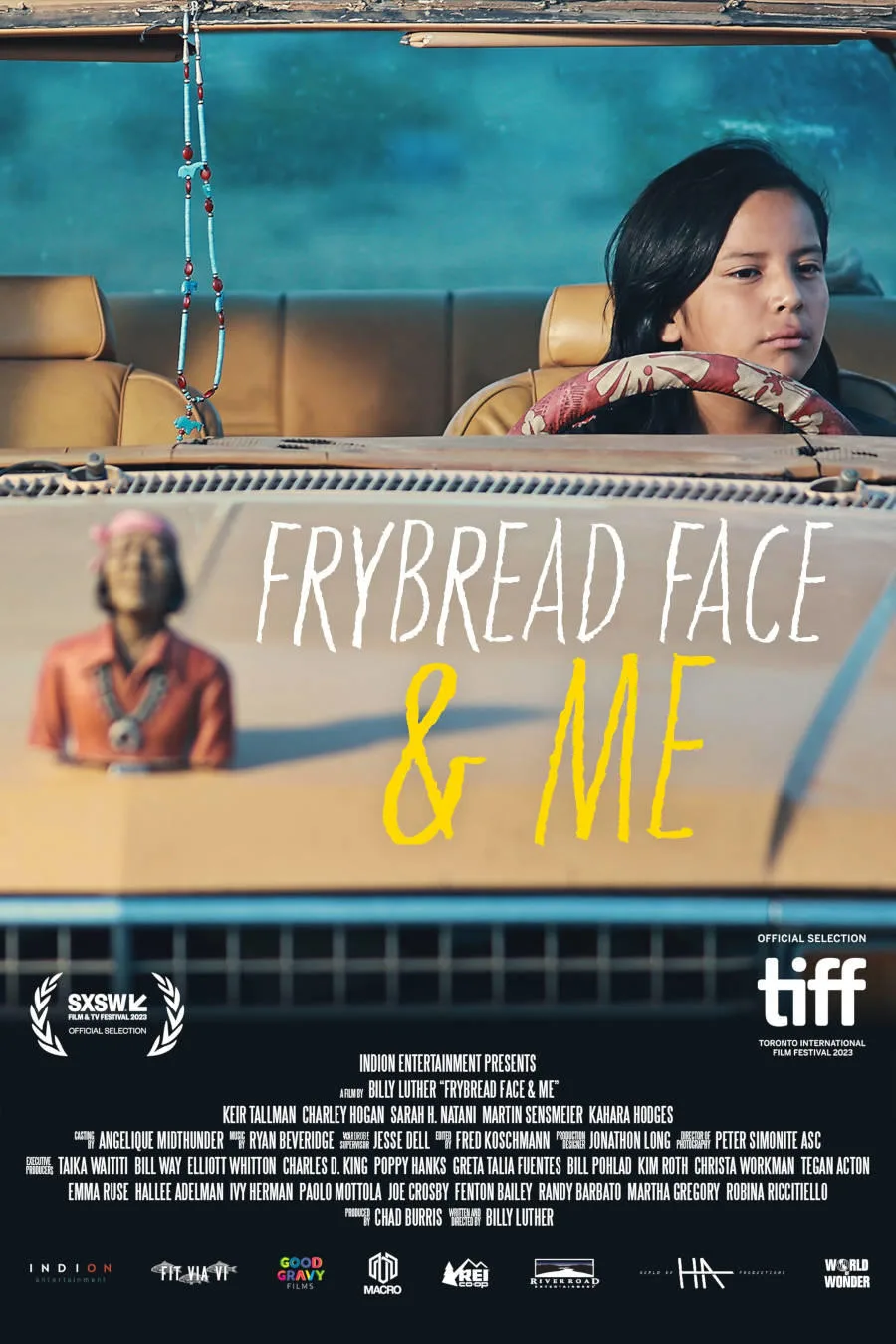When I was a girl, I spent summers at my grandparents’ house in Dayton, Ohio. There, I learned the virtues of thrift and self-reliance, digging in my grandmother’s garden, and watching her turn fresh vegetables into neat rows of tightly sealed Mason jars. To this day, the smell of a tomato plant, or the dusty, earthy scent of a root cellar, fills me with nostalgia and calm. A similar feeling runs through the coming-of-age dramedy “Frybread Face and Me,” but from an Indigenous perspective.
As the film begins, Benny (Keir Tallman) isn’t out of touch with his roots as a Navajo (or, as they preferred to be called, Diné), exactly—but that’s because he was never in touch with them in the first place. Then, in the summer of 1990, Benny’s parents abruptly ship him off from San Diego to Arizona to spend the summer with his grandmother Lorraine (Sarah H. Natani), who lives on “the rez” and refuses to learn English. (It’s the colonizer’s language.) It’s a type of exile designed to simultaneously toughen up a city kid and shield Benny from family drama back home in California. Benny is mostly upset that he will miss the Fleetwood Mac concert.
Isolated and out of place, Benny finds companionship in the form of his cousin Dawn (Charley Hogan), whom everyone calls Frybread Face because “it’s round and greasy.” At first, their relationship is combative: “Fry” rolls her eyes at the useless Benny, who doesn’t know anything about herding sheep and doesn’t speak a word of Navajo. But over time, these two outcasts develop a tender, largely unspoken understanding, allowing them to be fully themselves in each other’s company.
There’s a subtle LGBTQ+ thread that runs through “Frybread Face and Me.” It’s stated a few times in writer/director Billy Luther’s script that adolescent Benny struggles to live up to expectations of what a Diné man “should” be, and one scene sees Fry and Benny dancing together in traditional Diné women’s clothing. But the characters—and the movie—never press Benny too hard on the specifics of his still-developing identity, giving him the space to figure things out for himself.
That’s typical of this film’s gentle approach to storytelling, whose unhurried affect imbues small moments with outsized significance. The period details—the only movie to watch at Grandma Lorraine’s is the Jeff Bridges vehicle “Starman,” and Benny has a “Gorillas in the Mist” poster in his room—are reminiscent of Eddie Huang’s semi-autobiographical sitcom “Fresh Off the Boat,” which also combined ‘80s-’90s Americana with culturally specific family dynamics. And the film’s sweet, wry sense of humor recalls the work of executive producer Taika Waititi, arguably the most famous Indigenous filmmaker alive today.
This influence is especially notable in the film’s supporting characters, a revolving cast of eccentric aunts and macho uncles who pass through Grandma’s place whenever the movie needs a boost. These moments are charming, but the most affecting scenes in “Frybread Face and Me” are the quiet ones: A nearly wordless sequence where Lorraine, Fry, and Benny pile into Grandma’s truck to go sell some of her weaving at a gift shop catering to white tourists speaks volumes about the Diné people’s relationship with the land, their history, and the cycles of exploitation that keep them marginalized. This is Natani’s first film role: In real life, she’s an accomplished Navajo weaver, and life and art are spun together into a single thread in scenes where Lorraine teaches her grandchildren how to perform this spiritually significant craft.
But for every understated element of this film—another thoughtful touch is in its use of subtitles, which become more prevalent as Benny learns more words in Navajo—there’s a heavy-handed one. The music is unabashedly sentimental, as is the bookending voiceover narration. It’s as if the director (or perhaps a producer?) was worried the audience wouldn’t understand the emotional significance of the story without having it spoon-fed to them.
This is all forgivable, though, given the earnest affection Luther clearly has for his family—home video footage at the end of the film confirms that the story is indeed semi-autobiographical—and for Native people in general. (Luther belongs to the Navajo, Hopi, and Laguna Pueblo tribes.) Pickles in a bag, runaway sheep, dusty roads, the same movie over and over until the tape wears out—these are the sense memories that remind the filmmaker who he is and where he comes from. To share it with the world in this way is an act of profound generosity and love.
Now playing on Netflix.




















